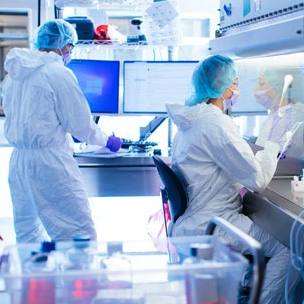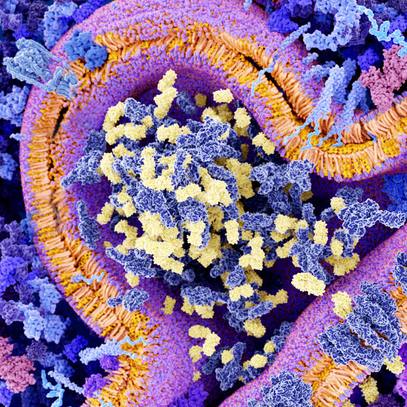Regenerative Medicine Minnesota, a statewide bipartisan initiative, has awarded five grants to Mayo Clinic investigators to advance new therapeutic options for osteoarthritis, liver disease, rotator cuff injuries and neurological birth defects.
People in Minnesota and beyond struggle with chronic diseases such as heart disease, arthritis and diabetes, and standard care doesn't always ease the symptoms.
Regenerative Medicine Minnesota awards approximately $4.35 in funding statewide every year to advance new treatment options that are safe and effective through regenerative medicine research, technology and patient care. This year, more than $1.47 million will go to Mayo investigators who seek new ways to tap the body's ability to regenerate itself.
Regenerative Medicine Minnesota grant award winners at Mayo Clinic are:
Clinical Trial Awards
Aaron Krych, M.D.
Dr. Krych was awarded $470,224 for "Mesenchymal Stem Cells-Facilitated Cartilage Recycling for Hip Defect."
Hip cartilage damage is a painful condition with few therapeutic options beyond a total prosthetic replacement. Left untreated, hip injuries lead to osteoarthritis and deterioration of the entire joint. This grant will fund a phase 1 safety study of cell-based cartilage regeneration at Mayo Clinic for hip injuries.
A patient's damaged cartilage will be extracted and mixed with mesenchymal stem cells and implanted back into the hip in a single arthroscopic procedure. Mesenchymal stem cells are adult stem cells with growth factors and healing potential.
The trial brings together a team of experts in orthopedic surgery, sports medicine, cell therapy, molecular biology and radiology to explore a minimally invasive potential treatment for hip cartilage defects.
Discovery Science Awards
Qiuying Liu, Ph.D.
Dr. Liu was awarded $250,000 for "Mechanistic Studies on a Congenital Hydrocephalus Causing Mutation in TRIM71."
Congenital hydrocephalus is a buildup of cerebrospinal fluid on the brain at birth that affects 1 of every 1,000 births. Pressure on the brain can cause brain damage or physical disabilities.
This rare condition has been linked to mutations in the Trim71 protein coding gene. However, the molecular basis for disease progression related to this genetic mutation remains poorly understood.
The Regenerative Medicine Minnesota grant will fund research into how the molecular mechanism of Trim 71 produces congenital hydrocephalus.
Rory Smoot, M.D.
Dr. Smoot was awarded $250,000 for "Augmenting Liver Regeneration at the Single Cell Level."
The goal of this research is to find ways to prevent and treat liver failure due to impaired liver regeneration. The research team will investigate how the molecule YAP can be targeted with medications that can activate a regenerative pathway and speed liver regeneration.
The findings could provide new treatments that trigger liver regeneration in patients, which is an important need, as no medications exist for these patients.
Jennifer Westendorf, Ph.D.
Dr. Westendorf was awarded $250,000 for "Development of Novel Proteolytic Targeting Chimeras That Promote Cartilage Regeneration."
Osteoarthritis is a leading cause of disability that occurs when cartilage that cushions joints breaks down due to injury, age or inflammation. Once that happens, no approved treatment is available to reverse cartilage loss or stop the progression.
Dr. Westendorf's team will probe on a molecular level how cartilage cells form and the role that plays in cartilage regeneration. The team will study proteins PHLPP1/2 that block the repair of cartilage to better understand the molecular mechanisms of cartilage degeneration.
The goal is to apply the findings to targeted therapies for cartilage regeneration that modify osteoarthritis.
Chunfeng Zhao, M.D.
Dr. Zhao was awarded $250,000 for "Purified Exosome Product for Rotator Cuff Repair and Regeneration."
A rotator cuff tear is a common shoulder injury that affects up to half of people over 50, and the prognosis for healing is poor. Between 20% and 90% of those who have surgery to repair shoulder damage will retear their tendons.
This grant will fund research into a possible biologic treatment derived from human blood known as purified exosome products, which are extra cellular vesicles that send targeted healing messages into exact cells in need of repair.
Dr. Zhao's team will mix the biologic with fibrin glue used to close wounds and test in animal models to understand its potential to regenerate rotator cuff injuries.
Regenerative Medicine Minnesota has made 214 grants totaling $34.5 million since 2014 to advance regenerative medicine in research, biobusiness and education.
###













